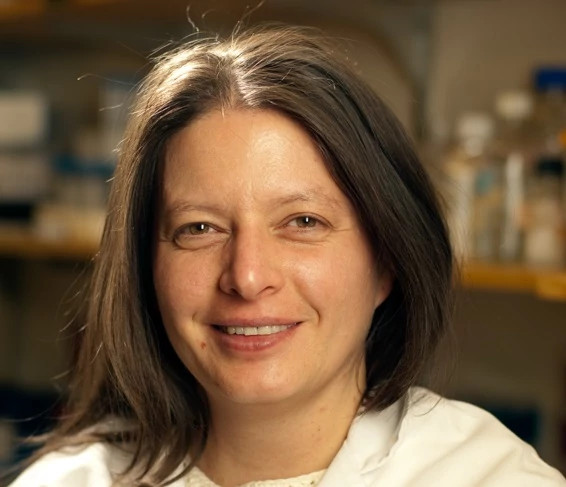Dana-Farber’s Kornelia Polyak, MD, PhD, recognized with the 2023 AACR Distinguished Lectureship in Breast Cancer Research
Dana-Farber’s Kornelia Polyak, MD, PhD, FAACR, is the recipient of the 2023 AACR Distinguished Lectureship in Breast Cancer Research. This award was established to recognize outstanding science that has inspired, or has the potential to inspire, new perspectives on the etiology, diagnosis, treatment, or prevention of breast cancer. Polyak’s award lecture will be presented on Thursday, December 7, at 1 p.m. CT at the San Antonio Breast Cancer Symposium.
Polyak is being recognized for her pioneering research involving the investigation of the role of the tumor microenvironment and intratumoral heterogeneity in tumor evolution, which has led to major advances in our understanding of breast tumorigenesis.
Polyak is one of the leading basic and translational scientists in breast cancer research. She has been and continues to be a pioneer in the study of tumors as an ecosystem, emphasizing the importance of the tumor microenvironment in disease progression and therapeutic resistance. Notably, she was the first to comprehensively profile the cell types that constitute normal, precancerous, and cancerous breast tissue. Further, Polyak proposed that the loss of normal myoepithelium may promote progression from ductal carcinoma in situ (DCIS) to invasive breast cancer. She also demonstrated that the active immune microenvironment of DCIS becomes immunosuppressed during the progression to invasive cancer.
Polyak’s early work dedicated to understanding intratumoral heterogeneity led her to be one of the first to characterize CD24+ luminal and CD44+ stem cell-like breast cancer cells, highlighting the necessity of reconciling the cancer stem cell hypothesis with the clonal evolution model. She published the first study assessing cellular genetic diversity in breast carcinomas using ecological and mathematical approaches and subsequently developed specific-to-allele PCR-FISH (STAR-FISH), a technique that allows for the detection of mutations at the single-cell level in intact tissue samples.
Importantly, Polyak’s lab also identified the JAK2/STAT3 pathway as a dependency in triple-negative breast carcinomas (TNBC), described BET bromodomain inhibitors as new therapeutic agents in TNBC, and characterized various treatment resistance mechanisms. Polyak’s current research continues to focus on breast tumor evolution through the analysis of patient tissue samples and experimental preclinical models. Moreover, she is actively studying the role of risk factors, such as genetic predisposition, age, and diet in cancer initiation and progression in an effort to design novel approaches for cancer prevention.
Media Contacts
If you are a journalist and have a question about this story, please call 617-632-4090 and ask to speak to a member of the media team, or email media@dfci.harvard.edu.
The Media Team cannot respond to patient inquiries. For more information, please see Contact Us.

Kornelia Polyak, MD, PhD, FAACR